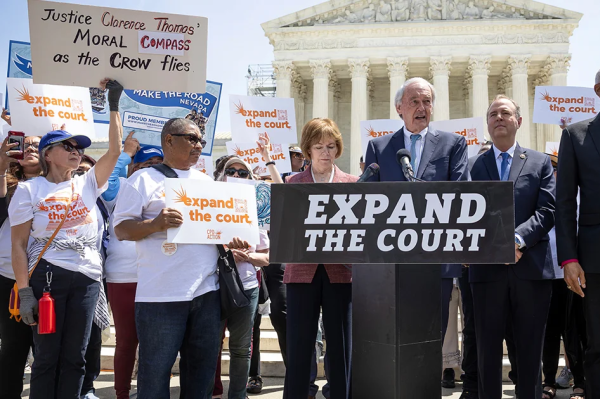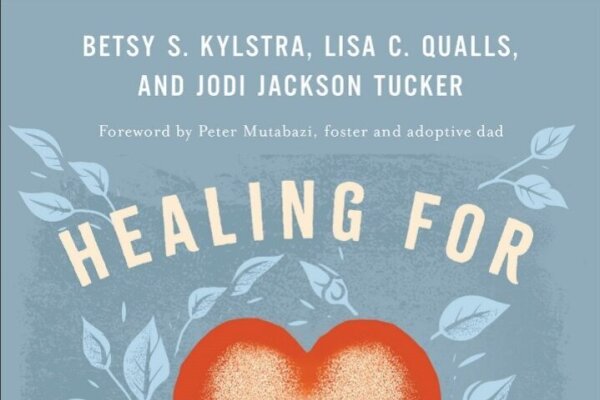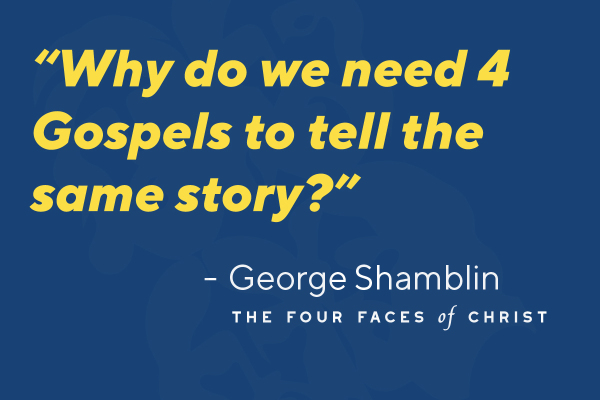The Revival We Need

Oh, that You would rend the heavens! That You would come down! That the mountains might shake at Your presence! (Isaiah 64:1)
Our space-time universe is held together by a spiritual universe at its core. In that spiritual realm, Scripture reveals the existence of an epic battle. The battle rages between good and evil, light and darkness, God and the devil, angels and demons.
That fierce battle in the invisible supernatural realm spills over into our visible natural realm every single day.
Revival remains one of the mightiest weapons in God’s arsenal.
Since there has been no nationwide American revival in about a century and a half, our institutional memory of the subject is understandably dim.
Perhaps I can shed a little light on it with a first-hand description.
This is taken from the journal of an uneducated farmer named Nathan Cole. Cole describes his reaction upon hearing that George Whitefield would soon be preaching. It’s a long quote, but really gives you an idea of the intensity of revival. [Spelling and grammar remain largely uncorrected.]
Now it pleased God to send Mr Whitefield into this land. I longed to see and hear him... and then one morning all on a sudden there came a messenger and said mr whitefield is to preach at Middletown this morning at 10 o'clock.
I was in my field at work. I dropt my tool that i had in my hand and run home and throu my house and bade my wife to get ready quick to go and hear mr whitefield preach... and run to my pasture for my horse with all my might fearing i should be too late to hear him and took up my wife and went forward as fast as I thought the horse could bear and when my horse began to be out of breath i would get down and put my wife on the saddel and bid her ride as fast as she could and not stop or slack for me except i bade her, and so i would run until I was almost out of breath and then mount my horse again... fearing we should be too late to hear the sermon for we had twelve miles to ride dubble in little more than an hour.
i saw before me a cloud or fog i first thought of from the great river but as i came nearer the road i heard a noise something like a low rumbling thunder and i presently found out it was the rumbling of horses feet coming down the road and this Cloud was a Cloud of dust made by the running of horses feet. It arose some rods into the air over the tops of the hills and trees and when i came within about twenty rods of the road i could see men and horses slipping along - it was more like a steady streem of horses and their riders scarecely a horse more than his length behind another -- i found a vacance between two horses to slip in my horse and my wife said law our cloaths will be all spoiled see how they look ["Lord, our clothes..."] - and when we gat down to the old meeting house thare was a great multitude it was said to be 3 or 4000 and when i looked towards the great river i see the fery boats running swift forward and backward - when i see mr whitefield come up upon the scaffold he looked almost angellical a young slim slender youth before thousands of people and with a bold undainted countenance and my hearing how god was with him everywhere as he came along it solemnized my mind and put me in a trembling fear before he began to prach for he looked as if he was Clothed with authority from the great god and a sweet solemnity sat upon his brow and my hearing him preach gave me a heart wound and by god's blessing my old foundation was broken up and i see my righteousness would not save me.1
This is what happens in times of revival. Satan can’t hold back the flood of interest in the gospel of Christ. Unusual crowds, displaying divine intensity, rush to salvation, and the consequence is a radically transformed culture.
The burden of this book is that our culture has passed a tipping point. We have lurched into the land of godlessness. I lay much of this cultural rot at the feet of the church. I don’t think anyone or anything can fix us, apart from the power of God in revival.
When God reawakens the church, he breaks through the hardness of heart that rationalizes a life with God on the periphery. He points to sins embraced and excused, and he brings about repentance. He convicts of broken relationships, bitterness, vengeance, racism, sexism, greed — all the sins that push people apart and damage a world already in trouble.
In revival, God reawakens the Christian conscience. He fast-tracks the divine purposes of grace-inspired repentance, grace-powered holiness, reconciliation, and restoration. Revival starts here, in the church.
But it isn't revival until lots and lots of people are getting saved. Yes, God first awakens his church, but revival doesn’t stop there. Revival impacts the world.
I am suggesting that revival is our only hope to counteract the levels of chaos we see.
America’s three Great Awakenings…
- Planted the seeds to eventually abolish slavery
- Turned addicts and alcoholics into faithful fathers and mothers
- Strengthened families
- Ushered in child labor laws
- Emptied out the saloons
- Emptied out the brothels
- Instilled a work ethic into society
- And on and on
Biblical Christianity created the kindest, most generous, most life-affirming culture history has known, despite its many imperfections.
Revivals set America on a biblical and Christian foundation, and that foundation created the most free and affluent nation in the history of the world.
The more we turn our backs on our Christian foundation, the faster we will race downhill toward a societal cliff.
In this chapter, I’d like to think through some theological issues around the topic of revival.
What Causes Revival?
There has been a long-running tug of war over what causes revival.
In the 1800s, an evangelist named Charles Finney burst on the scene. Finney is the preacher who paved the way for evangelists a century later like D.L. Moody, Billy Sunday, and even Billy Graham.
Finney was trained as a lawyer, so when he preached, he knew how to make his case. Together with several other evangelical leaders, his religious views led him to promote social reforms, such as anti-slavery and equal education for women and African Americans. He was president of a college which accepted students without regard to race or sex. Under his leadership, the faculty and students were activists for abolition of slavery, for the Underground Railroad, and for universal education.
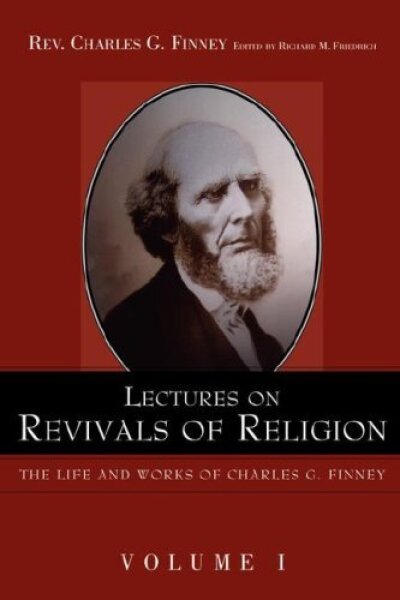
In 1935, Finney published his very influential Lectures on Revivals of Religion.
Finney presented a controversial view of revival. He said that revival is the predictable outcome of the church taking predictable steps. If Christians do xyz, God sends down revival. He writes,
You see why you have not a revival. It is only because you do not want one. Because you are neither praying for it, nor feeling anxious for it, nor putting forth efforts for it. I appeal to your own consciences: Are you making these efforts now, to promote a revival?
Finney’s views represented a radical change in the understanding of revival. His views are called revivalism, which is not the same as revival.
Finney argued that revival comes through the consecration and prayers of the church. He maintained that revival was the predictable outcome of certain steps that Christians can take. By inference, he argued, if there is no revival, it is because God’s own people are not taking the required steps.
That was a major shift in thinking.
Before Finney, revivals were largely understood as the sovereign work of God. Only God could decide when and where to send a revival. We could and should pray and prepare and consecrate, but, in the end, it is always God’s choice.
One author describes the earlier view, and in my theology, the correct view, like this:
Therefore, they preached the gospel, pleaded with sinners, and prayed for fruit like they had for years; and for reasons known only to God, he sometimes blessed these labours remarkably, and sometimes he didn’t. These revivals, in other words, were neither planned by men nor achieved by men. They did not involve any unusual or novel evangelistic techniques. They were understood, therefore, to be gifts of God.2
What Causes Revival?
A revival is the sovereign choice of God, given to turn around a nation, or a society in the grip of Satan’s lies, and deliver them to awakened levels of faith and remarkable inflow of new believers in Jesus.
It’s God’s call.
We can’t manipulate it.
We can’t manufacture it.
We can’t schedule it.
We can’t work it up.
Pray for revival? Yes.
Long for revival? Yes.
But it’s God’s call, not ours.
Revivals yes. Revivalism, no thank you.
What is the Core of Revival?
What I suggest here will be a surprise to most readers. The burden is on me to make the case biblically. The burden is on you to think about it and to decide for yourself.
Here’s my thesis: The core of Revival is the coming of Jesus in power and glory.
Let me illustrate.
When you go to the movies, before the featured attraction starts, you will endure or enjoy twenty minutes of coming attractions.
Coming attractions are mini-previews of upcoming movies. They are supposed to make you excited about the main event.
Applied to revival, the main event is the Second Coming of Christ. That day is coming. We believe Jesus is coming again. He is coming in clouds of glory, and his coming will be amazing.
I suggest that every revival is a mini-preview of the Second Coming of Jesus in power and glory. And, like a movie’s coming attraction, revival is supposed to make you excited for the main event.
In an earlier chapter, I described what I see as the demise of interest in the Second Coming. I called it an “eschatology appendectomy.”
It could be that revival tarries because the church isn’t interested in the main event. Why should God show us the previews if we’ve already decided the movie isn’t worth watching?
This tie-in between revival and the return of the Lord also explains why so many Bible verses about the second coming of Christ can do double duty as prayers for, or promises concerning revival.
- Oh, that You would rend the heavens! That You would come down! That the mountains might shake at Your presence-- (Isaiah 64:1)
- Sow for yourselves righteousness; Reap in mercy; Break up your fallow ground, For it is time to seek the LORD, Till He comes and rains righteousness on you. (Hosea 10:12)
- “And it shall come to pass afterward That I will pour out My Spirit on all flesh; Your sons and your daughters shall prophesy, Your old men shall dream dreams, Your young men shall see visions. And also on My menservants and on My maidservants, I will pour out My Spirit in those days. And I will show wonders in the heavens and in the earth: Blood and fire and pillars of smoke. The sun shall be turned into darkness, And the moon into blood, Before the coming of the great and awesome day of the LORD. And it shall come to pass That whoever calls on the name of the LORD Shall be saved.” (Joel 2:28-32)
The Day of Pentecost
Joel’s prophecy makes the case for my premise.
After Jesus died and rose again, he issued final teachings to those earliest believers. Then he ascended, rising up into heaven before their sight, and waving goodbye to his tiny, fledgling church.
Fifty days later, the Jews celebrated one of their most important festivals, called the Feast of Pentecost. For this feast, Jews traveled from all over the world to come to Jerusalem. At this time, they were still scattered throughout countless nations, and though they were Jewish, they spoke countless different languages.
Early that day, about 120 believers in Jesus gathered in a small upstairs room, called the Upper Room.
All of a sudden, this happened:
And suddenly there came a sound from heaven, as of a rushing mighty wind, and it filled the whole house where they were sitting. Then there appeared to them divided tongues, as of fire, and one sat upon each of them. And they were all filled with the Holy Spirit and began to speak with other tongues [languages], as the Spirit gave them utterance. (Acts 2:2-4)
May I remind you of our definition of revival:
Revival is a sudden and intense work of God in the church so startling that it grabs the attention of the onlooking world, resulting in unusually large numbers of lost people coming to faith in Christ.
Revival starts when God does something remarkable in the church, among his own people, among us. That is exactly what he did on the day of Pentecost.
The Holy Spirit came down with power on the early believers. This was not the first time God’s people encountered the Holy Spirit, but I’ll save that for another book.
They started speaking in tongues, which, in this case, means languages. These were recognizable languages the believers had never studied, never learned, and never before knew how to speak.
This work of God in the church was so startling that it grabbed the attention of the onlooking world.
And there were dwelling in Jerusalem Jews, devout men, from every nation under heaven. And when this sound occurred, the multitude came together, and was confused, because everyone heard them speak in his own language. Then they were all amazed and marveled, saying to one another, “Look, are not all these who speak Galileans? And how is it that we hear, each in our own language in which we were born? Parthians and Medes and Elamites, those dwelling in Mesopotamia, Judea and Cappadocia, Pontus and Asia, Phrygia and Pamphylia, Egypt and the parts of Libya adjoining Cyrene, visitors from Rome, both Jews and proselytes, Cretans and Arabs--we hear them speaking in our own tongues the wonderful works of God.” So they were all amazed and perplexed, saying to one another, “Whatever could this mean?” Others mocking said, “They are full of new wine.” (Acts 2:5-13)
God did something to Christians that grabbed the attention of non-Christians.
Lord, send revival!
What might he do today? A miracle like a new knowledge of unstudied languages is not out of the question. Or a new spirit of sacrifice and love. Or of grace and generosity. Of holiness, empowered by grace. Of wisdom in proclaiming the gospel. Of boldness in proclaiming the gospel. Of humility and fear of the Lord. Of the church being distinctly different in our morality, purity, and love. I don’t know what it will take for our generation.
But for the Acts 2 generation, the world took notice.
Peter stood up to preach.
“But this is what was spoken by the prophet Joel: ‘And it shall come to pass in the last days, [emphasis added] says God, That I will pour out of My Spirit on all flesh; Your sons and your daughters shall prophesy, Your young men shall see visions, Your old men shall dream dreams. (Acts 2:16, 17)
Peter goes on to quote the whole paragraph from Joel, eight centuries earlier.
Over here are Christians speaking in tongues, over there are unbelieving Jews from all across the known world, and overall of it is the outpouring of the Holy Spirit, even as Peter quotes a verse about the last days, about the time of the Second Coming of Christ, and saying, “this… is that…”
This is what Joel was speaking about. But wait, wasn’t Joel speaking of the last days?
A revival is, at heart, a mini-preview of the coming of the Lord. And that is why the same Scriptures that speak of Christ’s return also do a great job describing revival.
The most overlooked truth of Acts chapter 2, and the day of Pentecost, is that this is above all else, a revival.
The key figure in revival is not the Holy Spirit, but the Lord Jesus Christ.
We do not pray for the coming of the Spirit, as is so often seen in our churches today. We already have the fulness of God’s Spirit.
Instead, we pray and work that the name of Jesus Christ would be exalted and lifted up. This is exactly what Peter preached on the day of Pentecost. He preached Christ.
The consequence was magnificent:
Then those who gladly received his word were baptized; and that day about three thousand souls were added to them. (Acts 2:41)
To my mind, the salvation of three thousand souls in a day is a far greater miracle than 120 souls speaking in tongues. The eternal consequences are of infinitely greater magnitude.
It isn’t revival until unusually large numbers of lost people come to faith in Christ. This is what happened at Pentecost. This is the wonder of Acts 2. It is the wonder of every revival.
Imagine those 3,000 new believers, fanning out across the globe as they returned home, telling and retelling the story of the gospel of grace in all the tongues of Pentecost.
Please, God, send revival.
Wouldn’t it be amazing to see God reach down into your life, and my life, and our church, and our land? Wouldn’t it be amazing to live through a moment in which God did such a work of purifying, and empowering, and emboldening that we could not help but speak the wonderful works of his grace?
Can you imagine a church so on fire for grace and truth that in one day, 3,000 souls are added to the family of faith… and thousands more are influenced by their testimony?
What Keeps Revival on Course?
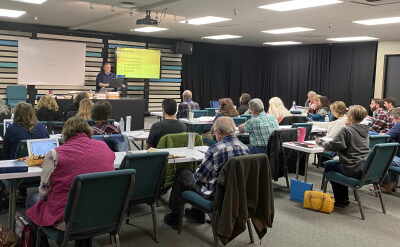
We need revival.
Lord, send revival.
But before God sends revival, he has to send something else, or else the revival brings more shame to the name of Christ than it brings glory.
That something else is a return to Biblical foundations. This is the passion and purpose of Veritas School of Biblical Ministry.
We live in an era when the biblical foundations of the church have been shaken and fractured in so many ways.
- Biblical illiteracy is at an all-time high among church people.
- Emotionalism.
- Activism.
- Experientialism.
- Subjectivism.
- A weird and irrational concept of tolerance.
- An increasing mash-up between Christian truth and secular error, mixed up in a stew called syncretism.
- Postmodernism, the opiate of liberal theologians, has stretched its tentacles everywhere.
- Wokeness is invading our churches and our seminaries, redefining the gospel, choking evangelism, and swamping the teaching of God’s Word.
The consequence is the chaos we see in culture, and the doctrines of demons spread everywhere, like candy.
Revival has a cousin, and that cousin is called Reformation.
Reformation is the work of God as he rebuilds the biblical foundations of the church, tears down demonic structures of deception and error, and restores the authority of Scripture and the knowledge of the gospel among his own people.
To summarize,
- Revival is somewhat emotional, Reformation intellectual.
- Revival is heat, reformation is light.
- The first urgent requirement to deliver the church from her chaotic condition is a thoroughgoing theological Reformation. We stand in desperate need of a penitent return to the Bible and our first principles.
- Revival is like a fast-flowing river. Reformation provides the banks that keep the river in check and prevent destruction.
I pray for revival. I preach and teach for revival.
But that revival must be founded on, and be the fruit of, a theological reformation that will hem in its excesses. I shudder to think of a revival without a reformation, especially in our loosey-goosey theological times. This is why Veritas School exists.
Our Urgent Need
I see no other solution to the chaotic condition of the world today than a divine intervention in the form of reformation and revival.
I have never been part of a revival. I have never seen one. My late colleague, Paul Edwardson — a statesman-evangelist of my denomination — spoke often of some precious experiences of revival. There is a palpable work of God, unusual in impact and feel. There are tears. There is renewed consecration. Relationships are restored. Reconciliation effected. Sins renounced. Long-forgotten truths embraced. A path of spiritual growth toward maturity is embarked upon.
A newfound zeal for evangelism is born, and so many people come to Christ that the region is changed, and the change is long-lasting.
As Martyn Lloyd-Jones taught us, “The church has ordinary days and extraordinary days. Most of them are ordinary.”
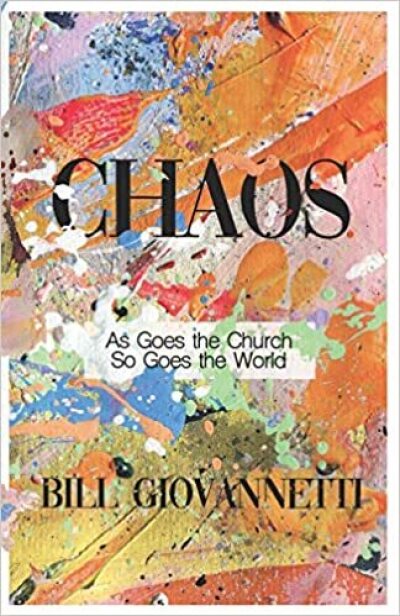
When the extraordinary becomes ordinary, it ceases to be extraordinary. So much for the teaching of continual revival. There’s no such thing. Most days are ordinary.
In those ordinary days, we preach, we minister, we serve, we pray, we strive, and we grow. In ordinary days, we must stay faithful.
But we can hope and pray for extraordinary seasons because that’s when a downpour of reformation and revival changes everything.
1 [Arnold Dallimore, George Whitefield, vol 1, p. 541].
2 Finney, Lectures of Revival on Religion (1835).
# # #
This is an excerpt from the book Chaos: As Goes the Church, So Goes the World, by Bill Giovannetti


